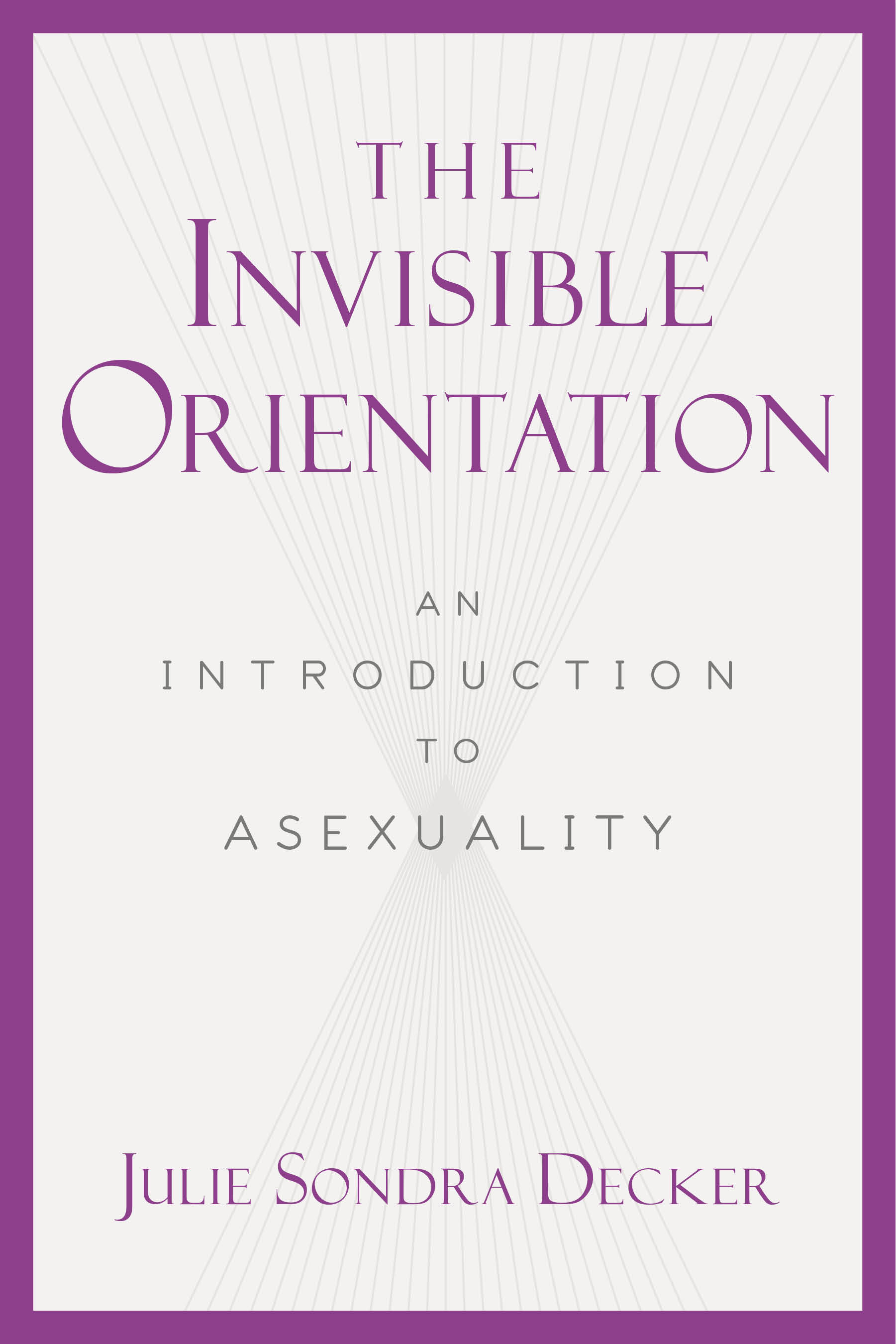
The following excerpts are from the upcoming book The Invisible Orientation: An Introduction to Asexuality by Julie Sondra Decker, out September 2014. Decker recounts her struggles as a member of the asexual community, a misunderstood and often denounced group.
She explains what asexuality is, what it isn’t, whom it affects and why it doesn’t need to be “cured.” Though many assume that asexuality is a disorder, that asexual person just haven’t met the right person yet or that he or she is secretly gay, Decker explains this is not the case. Further, she explains that asexual people can become sexual later in life, and that doesn’t mean they were not asexual before. Similarly, sexual people can become asexual.
Decker has written for the Huffington Post, The Daily Beast and Salon.
My Story
“It’s not you, it’s me.”
At age fourteen, I had my first boyfriend. I wasn’t attracted to him, but I kissed him a few times anyway because I was expected to. It certainly wasn’t the thrilling experience movies and romance books had led me to expect. In fact, I could barely think of an experience I’d enjoyed less. But whenever I told people I thought so, they’d say, “You’re fourteen. One day you’ll like it.”
At age sixteen, I left my second boyfriend perplexed and frustrated. I liked him as a person, but I wasn’t interested in him the way he wanted me to be: definitely not sexually, and not even romantically. My disinterest in having sex with him wasn’t rooted in the usual reasons—that “a lady” was expected to save herself, that I was afraid of sex, that I didn’t want to get diseases or get pregnant—I simply had a complete lack of interest in sex and anything related. I didn’t think sex was a gross concept. I didn’t think it was immoral. I’d just never been sexually attracted to another person. Not my boyfriend, not the hottest people in school, not the heartthrob movie stars. I wasn’t interested. Period.
My boyfriend dubbed me “Miss Non-Hormone.” I called myself “nonsexual.” I was reasonably sure that I would recognize sexual attraction if I felt it, but the mantra of “you can’t know until you try it” did inspire me to experiment a bit. And all my experiences were exactly what I’d expected: at best tolerable, at worst uncomfortable. Never enjoyable, never exciting, never intriguing enough to make me want more. I broke up with the boy because he considered sex an essential element in a relationship, and I vowed to trust myself from then on as the authority on what I was feeling and what experiences I wanted. If this “sexual attraction” thing ever happened to me, I’d go with it, and if not, I had no reason to force it. At eighteen, I fully expected to develop a “normal” sexual appetite when I got older.
That was in 1996.
Nothing changed for me, and I made my peace with that…It’s isolating and lonely to be the only person around who lacks sexual attraction or interest in sex. I know from experience, but I was used to defining and defending my feelings and choices through a privileged lens of high self-esteem. Without that core confidence, the criticism I dealt with would have been nearly unbearable…
And now, I want to help other asexual people to embrace their orientation without an instilled core of self-doubt.
Am I Asexual?
Are you sexually attracted to other people? Do you feel the need to make sex a part of your life? Do you have a desire to introduce sexual activities into your relationships? If you answered no to one or more of these questions, you may very well be asexual. No expert can “diagnose” you; only you can answer this for yourself.
HOW DO I TELL?
* Gray and demi identities are considered to be “on the asexual spectrum”— there are lots of in-betweens!
More Must-Reads from TIME
- Breaking Down the 2024 Election Calendar
- How Nayib Bukele’s ‘Iron Fist’ Has Transformed El Salvador
- What if Ultra-Processed Foods Aren’t as Bad as You Think?
- How Ukraine Beat Russia in the Battle of the Black Sea
- Long COVID Looks Different in Kids
- How Project 2025 Would Jeopardize Americans’ Health
- What a $129 Frying Pan Says About America’s Eating Habits
- The 32 Most Anticipated Books of Fall 2024
Contact us at letters@time.com